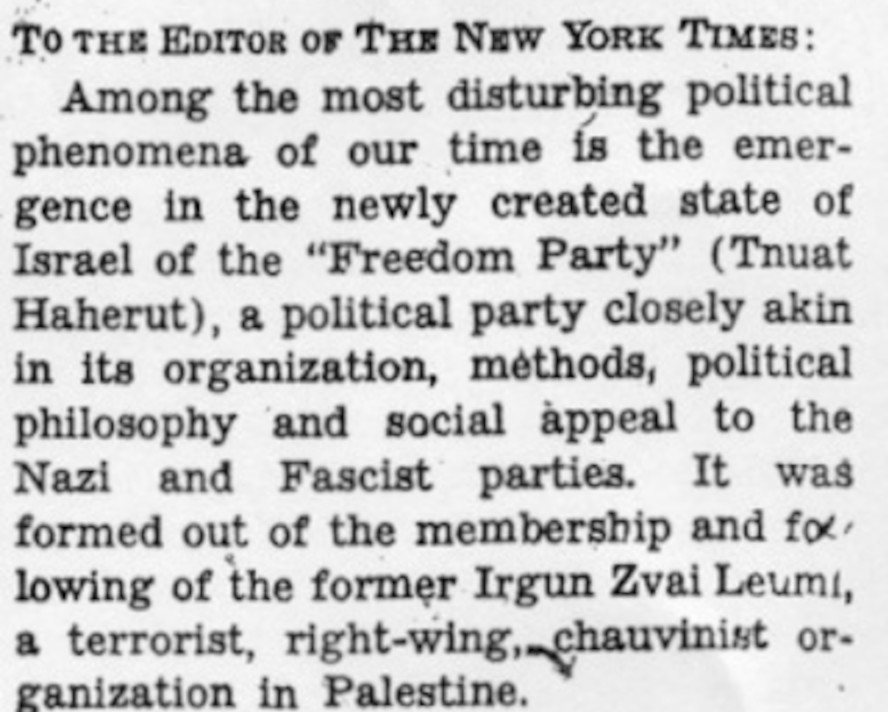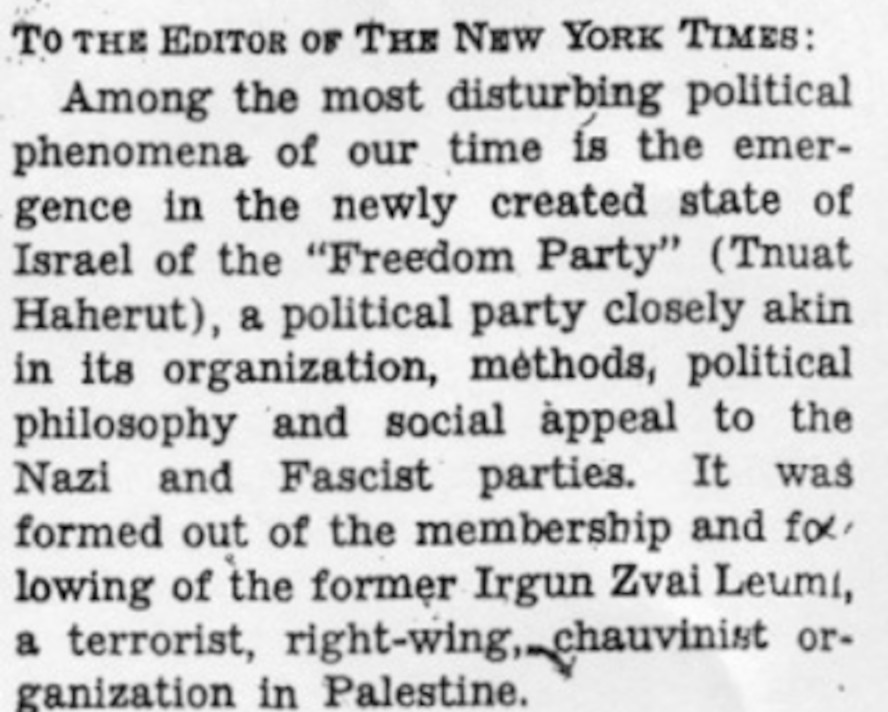Jewish UPenn Students Could Face Discipline For Screening Film Critical Of Israel
by Matt Shuham, HuffPost
University of Pennsylvania administrators told a student group it could lose funding and organizers could face consequences for screening "Israelism."
A Jewish student group at the University of Pennsylvania is facing potential disciplinary action for screening a documentary critical of the Israeli government.
Multiple universities have now attempted to stop student screenings of “Israelism,” an award-winning film that features the stories of American Jews who have traveled to Israel and subsequently reexamined their relationship with the country and with their own pro-Israel religious educations in the United States after seeing how Israel treats Palestinians.
Students from Penn Chavurah, a progressive Jewish group on campus, hosted a screening of the film Tuesday night, even though the university refused to permit access to a venue. Nearly 100 people packed into a classroom to watch the documentary, according to Jack Starobin, a board member and organizer at Chavurah.
“It’s moments like these where we’re counting on strong leadership to stay true to this university’s values, and that’s where I think the failing has been on the part of Penn administrators,” Starobin, a senior at Penn, told HuffPost.
A screening of the film, which was released in February, was scheduled for Oct. 24 but was postponed after Hamas’ deadly Oct. 7 attack on Israel and Israel’s subsequent retaliatory attacks on the Palestinian territory of Gaza.
Starobin said he’d been in talks with university administrators for weeks about holding a screening this month instead. A few days ago, the university denied organizers’ request for event space to hold the screening, suggesting it be delayed until February. Administrators never provided any specifics behind their reasoning, Starobin said. Erin Axelman, a co-director and producer of the film who participated in a question-and-answer session after Tuesday’s screening, said administrators referred “vaguely only to campus safety.”
When administrators found out that organizers planned to hold the screening this week anyway, they told Starobin that doing so could jeopardize Chavurah’s status and funding from the school, and could lead to disciplinary action against organizers, he told HuffPost.
Harun Küçük, the director of UPenn’s Middle East Center, which ultimately arranged a room for the screening, resigned from that post Tuesday over “inappropriate pressure from administrators” regarding the screening, according to a letter from the school’s chapter of the American Association for University Professors. Küçük, who did not respond to HuffPost’s request for comment, confirmed his resignation to The Daily Pennsylvanian, telling the paper, “I would not have resigned if I had any comment left in me.” He is still an associate professor of history and sociology of science at UPenn.
A university spokesperson who declined to give his full name acknowledged to HuffPost that administrators sought to postpone the screening until February ― citing “the safety and security of our campus community” without explaining further ― and said that student organizers had “disregarded” the university’s direction by hosting the screening this week.
“Consistent with University policy, the student organizers will be referred to the Office of Community Standards and Accountability to determine whether a violation of the Code of Student Conduct occurred,” the spokesperson said.
Axelman accused the university of a “profound lack of academic integrity” and of attempting to intimidate and censor student organizers.
“We are honestly baffled and deeply disappointed by UPenn’s continued attempt to censor progressive Jewish voices, at the exact time when nuanced conversations about Jewish identity and the root causes of the Israeli-Palestinian conflict are most needed,” Axelman said.
Since Oct. 7, Penn has come under significant pressure from politicians and benefactors who have pushed administrators to fight antisemitism, broadly defined.
Earlier this month, more than two dozen members of Congress wrote to Penn President Liz Magill condemning “your institution’s silence in condemning the terrorist attack that took place by Hamas on October 7, 2023.” (Magill had been far from silent, releasing numerous statements that condemned the attack and antisemitism.) Rep. Ralph Norman (R-S.C.), a signatory, sent similar messages to Yale, Columbia and Harvard, CNN reported.
That letter, and various donors to Penn, also condemned the Palestine Writes Literature Festival, which was held on Penn’s campus in September.
On the other hand, some professors, students and pro-Palestinian activists have criticized Magill for statements that, as the Arabic literature scholar and Penn professor Roger Allen told The Daily Pennsulvanian, “vastly under-represented opinions and status” of Arab and Palestinian community members.
Starobin criticized what he viewed as a double standard at the university. Earlier this month, he noted, Rabbi Shmuel Lynn commented during an event hosted by Penn Hillel and Meor Penn, another Jewish group on campus, “It is not trite to say that there’s a war, there’s another frontline, there’s another camp of battle that we’re all fighting ... there’s a two-front war, in this sense, for the heart and soul of us, the people, [and] for the existential threat, the survival.”
The Penn student said he regretted that Penn Chavurah’s decision to hold the “Israelism” screening had turned oppositional and noted that organizers had cooperated with police who were on hand the night of the screening. His organization’s goal, he said, was to provide an opportunity to discuss a controversial topic in an open environment. The university’s action to prevent the screening, he argued, boded poorly for academic freedom.
“It suggests that the university feels it has the license to shut down any dialogue on campus if it conflicts with the preferences of its donors or the dominant current of national politics,” Starobin said. “And that kind of caving toward the dominant strain of thinking on a controversial issue is precisely the kind of intellectual tunnel vision that a university should seek to avoid, combat and provide space to escape.”
“That kind of caving toward the dominant strain of thinking on a controversial issue is precisely the kind of intellectual tunnel vision that a university should seek to avoid.”
- Jack Starobin, UPenn senior
Fights over the film, which have played out on various college campuses, are part of a larger public debate over the limits of acceptable criticism of the Israeli government. On Oct. 7, Hamas militants based in Gaza killed about 1,200 Israelis and took more than 200 hostage in a surprise attack, according to Israeli authorities. Israel responded with devastating airstrikes and a ground invasion on the Gaza Strip that have now claimed at least 15,000 lives, according to Palestinian authorities, and led to the displacement of nearly 2 million people, according to the United Nations. Several Israelis held in Gaza have now been swapped for Palestinian prisoners held by Israel as part of a cease-fire agreement that continues to be negotiated.
Hunter College canceled a scheduled screening of “Israelism” earlier this month. The New York City college’s interim president, Ann Kirschner, said that the decision was made in the interest of ensuring “the safety of our learning community” and that administrators wanted to avoid “targeting any students, faculty or staff based on their identity: the essence of bigotry.”
“In the current climate, we seek to balance our commitment to free speech and academic freedom with the danger of antisemitic and divisive rhetoric,” Kirschner said, noting that police were investigating the drawing of swastikas on posters surrounding school buildings.
The school’s senate, composed of students, faculty and staff, subsequently passed a resolution criticizing what it called “an egregious and illegitimate violation of the academic freedom necessary for departments to pursue their academic missions and institutions of higher education to operate with integrity.” The university rescheduled the screening for Dec. 5.
Daniel J. Chalfen, one of the film’s producers, told The New York Times that Hunter’s initial decision to cancel the screening was the result of “a very organized campaign to shut it down.” The Times noted at least two email campaigns that produced hundreds of messages urging Hunter administrators to cancel the screening, including one originating from a Facebook post that described the film as “antisemitic.”
The following day, The Forward, the nonprofit Jewish publication, reported on a pattern of similar email campaigns attempting to prevent screenings of the film at several colleges, including Oberlin and Yale. The publication also reported that Dov Waxman, the director of UCLA’s center for Israel studies, said he’d come “under intense pressure from numerous organizations and individuals,” including calls asking for major donors to the center to push for his firing, because he’d decided to host a screening of “Israelism.”
“The opposition is not from students,” Sam Eilertsen, who co-directed the film with Axelman, told The Forward. “The opposition is coming from just people on the internet.”




Well the accusations are not new. What's new here?